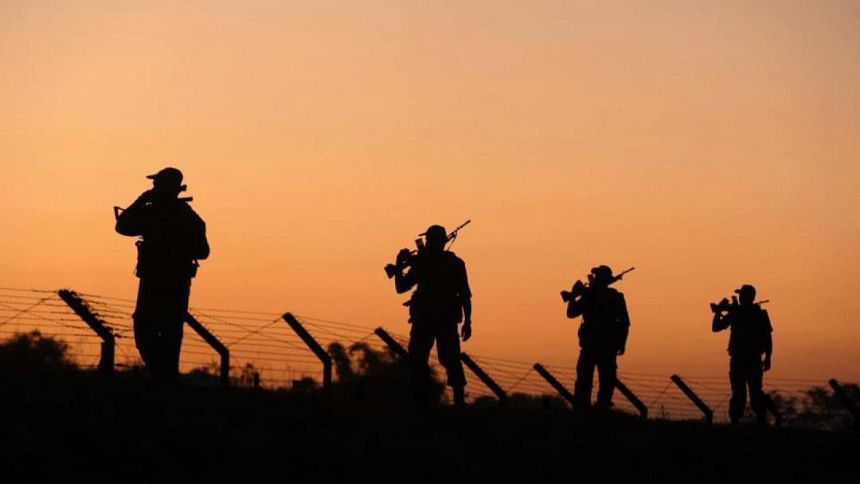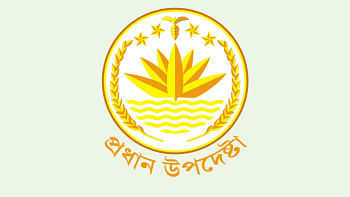Killings at the Bangladesh-India border

January 7 marked the ninth anniversary of the gruesome killing of Felani Khatun, 15 years old, at Anantapur border of Phulbari Upzila in Kurigram district. She was working as a domestic help in New Delhi and was returning to Bangladesh with her father. While illegally crossing the border, Felani's dress got tangled on the barbed wire fence. In response to her panicked scream, the Border Security Force (BSF) of India opened fire at her. She succumbed to her injuries. Like medieval times, perhaps to frighten likely transgressors, her lifeless body was kept hanging upside down for about five hours.
Felani's murder triggered outrage in Bangladesh and in some quarters of India. The image of Felani's hung body went viral in international media. Despite demands for justice and action against the perpetrators, the prime accused, BSF functionary Amiya Ghosh, and his superior officers were found not guilty by the BSF's internal court, the General Security Forces Court. After reconsidering the verdict, the same court upheld the decision. The directive of the National Human Rights Commission of India to pay compensation to Felani's family went unheeded.
Incidents of killing civilians along the border have been a major cause for concern in Bangladesh. In July last year, Bangladesh home minister informed parliament that a total of 294 Bangladeshis were killed by the Indian BSF along the border in the last 10 years. The minister further informed that 66 Bangladeshi nationals were killed in 2009, 55 in 2010, 24 each in 2011 and 2012, 18 in 2013, 24 in 2014, 38 in 2015, 25 in 2016, 17 in 2017 and only 3 in 2018.
The drop in figures for three successive years (2015 to 2018) led the minister to assure the house that the killing has reduced. His hope, however, was belied by the staggering twelve-fold increase in border killing to 34 in 2019 (from 3 of 2018). Based on reports of leading newspapers, non-government sources claim higher number of casualties in 2019. Ain O Shalish Kendra (ASK) and Odhikar sources put the figure at 46 and 41 respectively. Odhikar documentation further shows 40 Bangladeshis sustained injuries by BSF action and 34 more were abducted by the BSF in the same year. The disaggregated ASK data inform that of the 46 people killed in 2019, six died of torture.
The BSF prefers to term such fatalities as "undesirable death" instead of killing. Following meetings between the Director Generals (DG) of BGB and BSF in Dhaka on June 12-15, 2019, the DG of BSF asserted that such incidents were "undesirable deaths, not killings". He, however, admitted that lethal weapons were being used by the BSF personnel "in self-defense when miscreants launched attack on them". This was in violation of the April 2018 accord under which both parties agreed not to resort to lethal weapons in dealing with cases of border crossing.
After the recent round of DG level meeting of BGB-BSF in Delhi at the end of December 2019, the BGB head informed the media that he had expressed his concern "about the killing of Bangladeshi people by the BSF at the border areas", and in response "the BSF has assured that it would be alert and vigilant so that such undesirable deaths could be avoided in the future". Incidentally, one Bangladeshi citizen was killed by the BSF only a day before the chiefs of two border security forces was set to hold a press conference.
Irked by the persistent deaths along the border, on January 11, the Bangladesh foreign minister noted that "India promised [that] not even a single person would die in the border area. Unfortunately, border killing is a reality. We are concerned". He went on to say that Bangladesh would demand that the Indians deliver on their promise (Prothom Alo, January 12, 2010).
Excessive use of force by the BSF is the principal precipitating factor in the persistence of killing of Bangladeshi nationals at the border. The border areas between the two countries are densely populated. Many people on both sides have lost farms and livelihood to riverbank erosion and are dependent on cross-border activities, such as cattle rusting and smuggling of other items. In many instances, people are killed and tortured merely on suspicion of being involved in smuggling. Children, allegedly employed by smugglers to reduce the risk of detection, also fall victim to such reckless use of lethal force.
The justification provided by the Indian authorities that BSF forces have to resort to violence in self-defense is not supported by facts. Years ago, Human Rights Watch in a report titled Trigger Happy documented a number of cases in which "survivors and eyewitnesses have alleged that BSF engaged in indiscriminate shooting without warning… [and] instead of attempting to arrest them, BSF officers immediately opened fire". The BSF also claims its personnel have to fire when miscreants evade arrest. But suspicion of a crime and dodging of arrest cannot alone justify use of lethal force. HRW reminds us that "[i]n fact, even India's domestic laws which allow 'all means necessary' in case a person attempts to use force to resist arrest, specifically forbid causing the death of a person who is not accused of an offense punishable by death or life term".
Reported incidents of torture, including those involving children, are also rife. On May 10, 2019, Kabirul Islam succumbed to torture by BSF in the Kushkhali border of Shatkhira. Petrol was thrusted in his mouth and anus. Weeks later, on May 27, in the Shapar border of Naogaon, nails of all 10 fingers of young shepherd Azimuddin were allegedly pulled out by the perpetrators.
HRW, Odhikar and ASK reports as well as a stream of media accounts clearly establish the fact that victims of border killing, the alleged criminals, were either unarmed or armed with only sickles, sticks and knives. In dealing with them, the Indian border guards were likely to have used excessive force. In many instances, the victims were shot in the back, suggesting they were running away. The HRW further notes that in none of the cases it investigated could the BSF "show that it had recovered lethal weapons or explosives from the victims that could pose an immediate threat of death or serious injury that might justify killings in self-defense". Thus, the BSF approach is a "shoot to kill" policy that violates national and international standards on the right to life and presumption of innocence which are applicable in India and Bangladesh.
Bangladesh's expression of concern about the unlawful killing of unarmed Bangladeshi nationals at the border has received little attention in New Delhi. So far, India has not provided details of any BSF personnel prosecuted for killing a Bangladeshi national to the Bangladesh government. Along with other security forces, the BSF are exempt from criminal prosecution, unless specific approval is granted by the Indian government. This near total absence of accountability of the BSF personnel only perpetuates the incidence of border killing.
Good neighbourliness demands that border trespassers be dealt with in accordance with national and international laws. The Indian government should ensure its border security force respect basic rights and follow the rule of law. It should publicly order BSF and other security forces to abide by the UN Basic Principles on the Use of Force and Firearms by Law Enforcement Officials. BSF's internal justice system has so far failed to prosecute its own members. The Indian government may consider allowing civilian authorities to investigate the cases of abuse.
The civil society organisations both in Bangladesh and India should demand the Indian government set up an independent and impartial body with the provision for both Bangladeshis and Indians to submit evidence and register complaints to such a commission.
In the first 15 days of 2020, three Bangladeshis have already been reportedly killed by BSF at the border. Such steep rise in border killing and the failure of the Indian authorities to take any meaningful measure to bring an end to border killing for years have, in all likelihood, cost it a lot of goodwill in Bangladesh. It has also placed the Bangladesh government in a difficult situation straining bilateral relations. It's time the policymakers in New Delhi brought an end to such a policy.
C R Abrar is a professor of International Relations at the University of Dhaka. He writes on rights and migration issues.

 For all latest news, follow The Daily Star's Google News channel.
For all latest news, follow The Daily Star's Google News channel. 



Comments